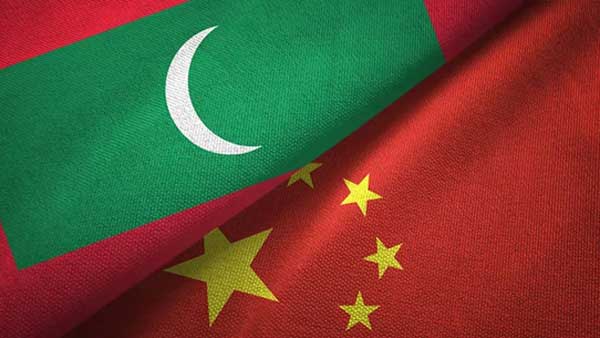
Maldives to Activate FTA with China in 2024 : Minister Saeed Announces Significant Trade Opportunities
In a recent press conference, Minister of Economic Development and Trade, Mohamed Saeed, confirmed that the long-awaited Free Trade Agreement (FTA) between the Maldives and China will come into force this year. This agreement is set to eliminate tariffs on 296 types of seafood exported from the Maldives to China, creating a significant boost for the local seafood industry.
Minister Saeed highlighted that the FTA will soon be submitted to the Parliament of the Maldives for approval, marking a crucial step in its implementation. The agreement, originally signed in 2014 and approved by Parliament in 2017, was delayed due to a government transition in 2018.
"The FTA with China will provide numerous benefits for Maldivian businesses," said Minister Saeed. "We will be able to export a variety of seafood to China without any tariffs, which is a major advantage for our exporters. Additionally, some types of seafood can be imported from China, processed, and then re-exported from the Maldives, adding value and boosting our economy."
Minister Saeed also mentioned ongoing negotiations to establish FTAs with other countries. An agreement with Turkey is expected to be finalized and implemented this year, which will benefit Maldivian exporters, particularly in the fisheries sector. Furthermore, India has expressed interest in establishing a similar trade agreement with the Maldives, signaling a broader strategy to enhance trade relations globally.
The activation of the FTA with China is anticipated to transform the trade landscape for Maldivian businesses. By removing tariffs on seafood exports, the agreement will enhance the competitiveness of Maldivian products in the Chinese market, potentially increasing export volumes and revenue. This development is particularly significant for the fisheries sector, a cornerstone of the Maldivian economy.
"With the FTA in place, we expect to see a substantial increase in seafood exports to China," Minister Saeed stated. "This will not only benefit the businesses directly involved but also contribute to the overall economic growth of the Maldives."
In addition to seafood, the FTA provides opportunities for other sectors to explore the Chinese market. The agreement is expected to encourage diversification of exports, paving the way for new products to reach Chinese consumers. This diversification is crucial for the resilience and sustainability of the Maldivian economy.
Minister Saeed's announcement also underscores the government's proactive approach to expanding trade relationships. The potential FTAs with Turkey and India indicate a strategic effort to secure favorable trade terms with multiple countries, thereby broadening market access for Maldivian products.
"The government's focus is on creating an enabling environment for our businesses to thrive," said Minister Saeed. "By establishing FTAs with key trading partners, we are opening doors for our entrepreneurs to explore new markets and opportunities."
The news of the FTA's activation has been met with optimism by the business community in the Maldives. Many see it as a long-awaited opportunity to enhance their competitiveness and expand their market reach. The removal of tariffs is particularly significant for small and medium-sized enterprises (SMEs), which often face challenges in accessing international markets.
As the Maldives prepares to implement the FTA with China, the government is expected to provide support and guidance to businesses to maximize the benefits of the agreement. This includes information sessions, export facilitation services, and other initiatives to help businesses navigate the new trade environment.
The FTA with China marks a significant milestone in the Maldives' trade policy. By fostering closer economic ties with one of the world's largest economies, the Maldives is positioning itself for sustained economic growth and development. With additional FTAs on the horizon, the future looks promising for Maldivian businesses eager to explore new opportunities on the global stage.